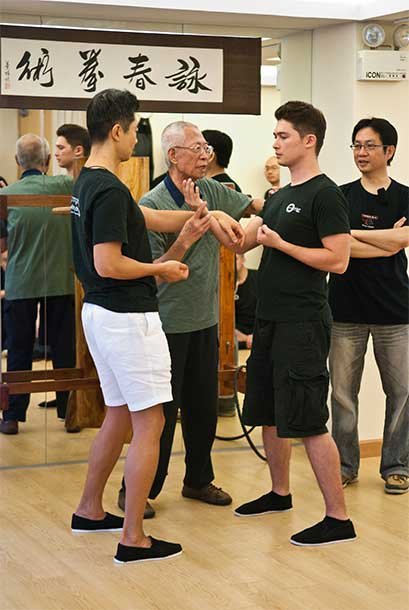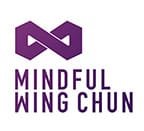Wing Chun is a form of Chinese Kung Fu derived from the Shaolin Temple. Even though it comes from southern China it is commonly known by the world as Hong Kong’s Kung Fu style. That’s because Grandmaster Ip Man brought Wing Chun to Hong Kong from Foshan in 1949 and he taught many students, including foreigners, which was a rarity at the time. So Wing Chun flourished in Hong Kong and became known worldwide when Bruce Lee moved to the United States and spoke/demonstrated his Wing Chun skills to the world.

Wing Chun and Hong Kong – What is is all about?
Wing Chun’s effectiveness became popular because it emphasizes the use of the opponents force against them, simplicity and body mass to produce force, allowing the smaller framed Hong Kong locals to become very effective at this style of self-defense. There were many rooftop battles and challenge matches in those days and Wing Chun came out on top due to the effectiveness of the style.
Hong Kong has changed a lot since those days, there are no longer challenge matches and Hong Kong is a safe city. So what is the relevance of doing Wing Chun Kung Fu in Hong Kong now?
Well, Wing Chun is much more than a system of fighting. It is a way of gaining deep peace and relaxation, developing greater focus and mind power, and for the more serious student a way to ‘master yourself’.It is a way to understand our bodies and be more aware of ourselves, in other words a ‘way’ of life. My Kung Fu brothers and I have the pleasure of passing on Wing Chun to this generation.
Hong Kong In The Present
In Hong Kong nowadays, I find people aren’t taking too much care of themselves or think they don’t have the time. They are working really hard in offices and suffer from stress, back pain and have very little awareness and understanding of their bodies.I believe Wing Chun has taken on a different role but at the same time remains the same. It is a tool for understanding ourselves and having greater health and vitality. Helping us with our posture, stress, confidence and focus.
Some say that Wing Chun could be translated everlasting springtime. Suggesting for us to constantly learn, grow and aim go be healthier because that’s a natural of life.
– Kaming Yuen (Instructor of the Mindful Wing Chun method in Australia)

